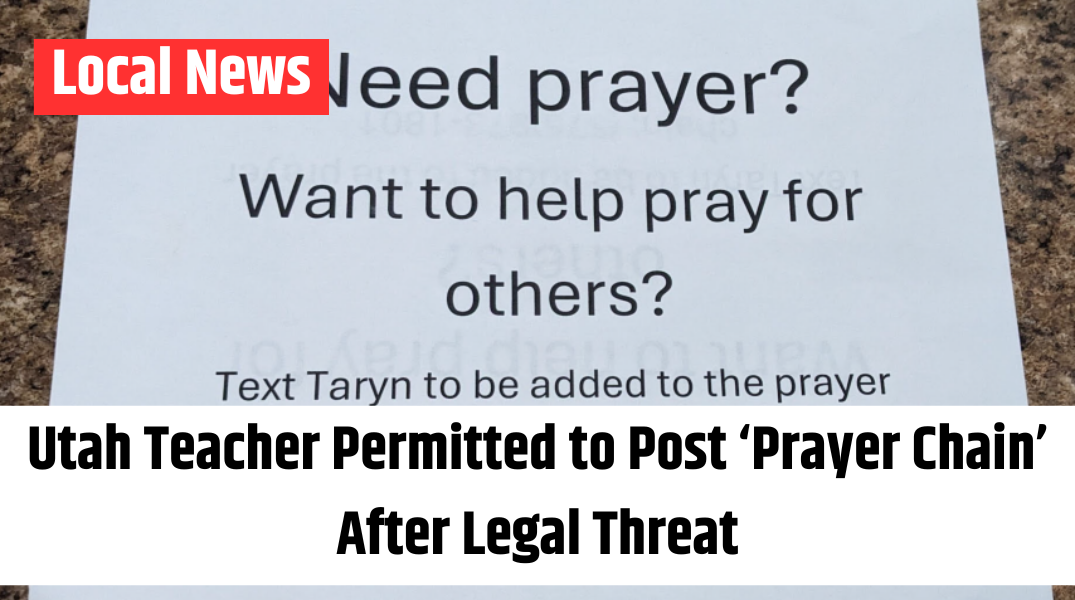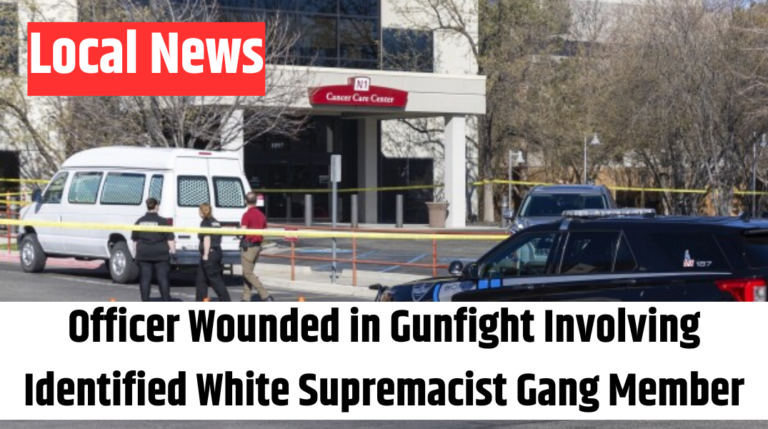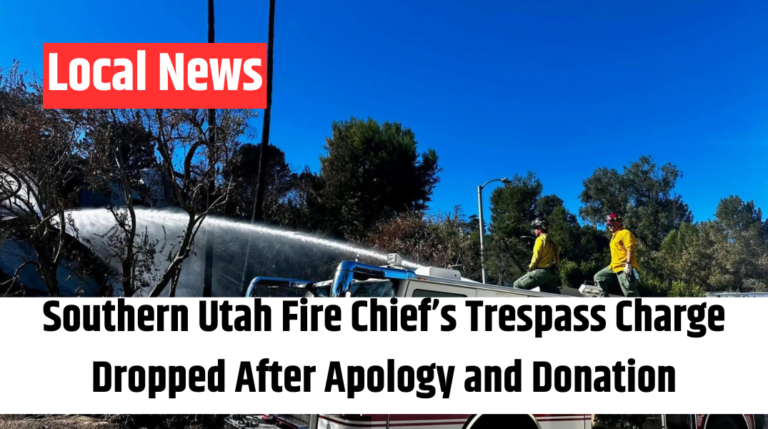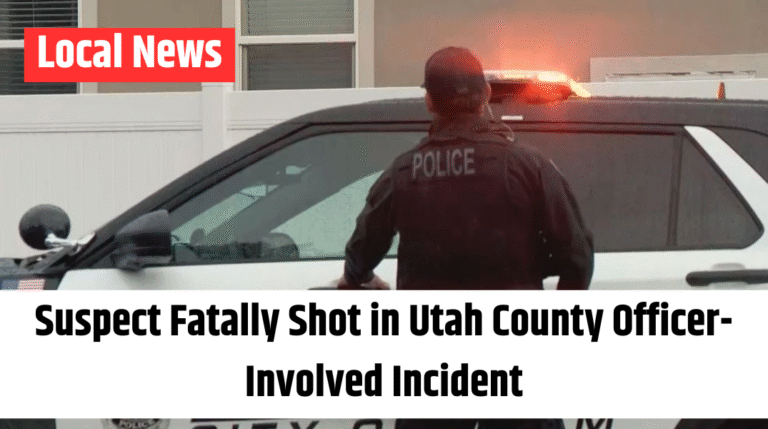
HEBER, Utah — A Wasatch County teacher’s effort to share a prayer chain with colleagues has been resolved through cooperation with the school district, avoiding a potential legal battle over religious expression in the workplace.
Taryn Israelson, a teacher at J.R. Smith Elementary School in Heber, posted a note in the faculty lounge about two years ago inviting fellow staff members to join a voluntary prayer chain. The note read: “Need prayer? Want to help pray for others? Text Taryn to be added to the prayer chain.” Although initially approved by the district’s human resources department, the message was later removed at the direction of the school principal, who expressed concern that it could be perceived as an official endorsement of religion by the school.
In response, Israelson reached out to First Liberty Institute, a legal organization that advocates for religious freedoms. Attorneys for Israelson argued that the sign represented her private religious expression and should be treated the same as any other personal communication allowed in staff areas.
In April, the legal team sent a demand letter to the Wasatch County School District, warning of possible legal action unless the teacher’s sign was reinstated. The letter proposed a simple solution: allow the prayer chain sign to be posted alongside other secular notices, with a disclaimer clarifying that the content represented private speech, not the school’s official position.
The district reviewed the matter and ultimately agreed to a compromise. Officials established a designated bulletin board in the break room for personal employee messages, allowing Israelson’s prayer chain information to remain posted without suggesting school endorsement.
“We were pleased the district chose to address this fairly,” said Keisha Russell, senior counsel at First Liberty Institute. “This resolution affirms that religious speech deserves the same treatment as secular speech.”
Russell emphasized that this case highlights a common misconception among schools — that the First Amendment’s Establishment Clause requires complete exclusion of religion from public settings. “The Constitution doesn’t call for banning religion,” she said. “It calls for neutrality — treating all forms of speech, including religious, equally.”
The Wasatch County School District confirmed the issue had been resolved through collaboration with Israelson and her legal team. In a statement, the district said:
“Wasatch County School District and the teacher involved have reached a mutual agreement that supports respectful expression and maintains the integrity of the learning environment. We remain committed to fostering an inclusive workplace where staff can share personal notices in designated areas without implying official district endorsement.”
Officials declined to provide additional details, citing the importance of protecting the privacy of those involved and preserving the cooperative nature of the resolution.




